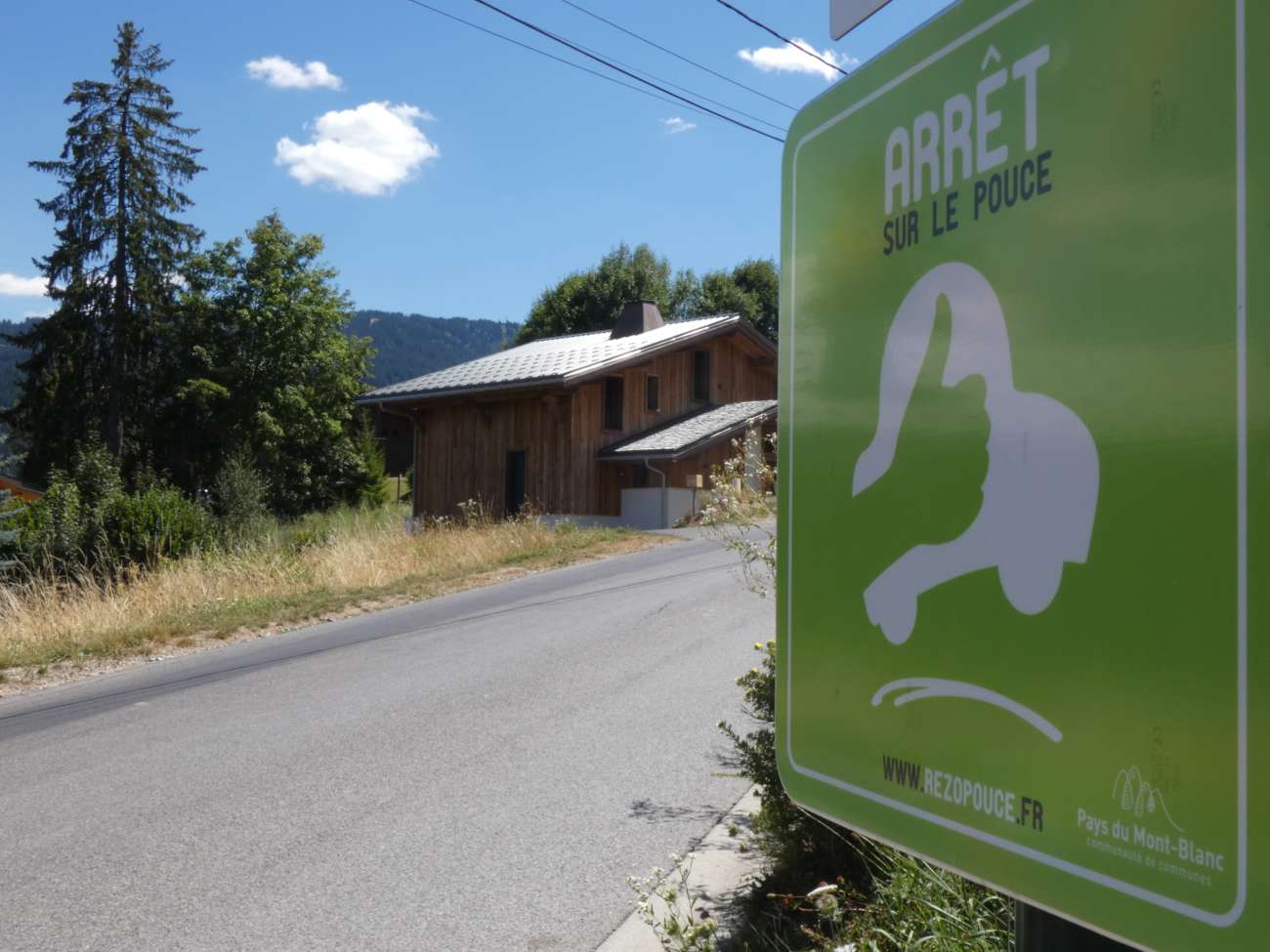Rezo Pouce, hitchhiking to improve rural mobility
Rezo Pouce is a solution to mobility problems in rural areas. It offers a free, environmentally friendly and user-friendly mode of transport by promoting the practice of hitchhiking in an organised and safe way. Rezo Pouce has been developed for local authorities that need to enrich their transport offer and intermodality with existing systems in rural areas.
About Rezo Pouce
Rezo Pouce is a mobility solution adapted to short car rides and daily journeys in rural and peri-urban areas in France. The platform was developed in partnership between a local authority, the Transdev Group, a major player in the global transport industry, and the Macif Foundation, a non-profit organisation dedicated to social innovation. It is now managed by a social enterprise. This French social enterprise has reinvented the concept of hitchhiking by creating a website and an app that locates the nearest registered “hitchhiking spots”. The idea was originally sparked by the closure of a railway line, when daily users had to find a solution to get to the nearest station.
Users can get a free ride to and from their chosen destination. The costs of the system (mainly staff costs and web development) are met by the registering communities, with support from LEADER in some areas. Municipalities pay a membership fee to access the services of Rezo Pouce, including the website, its methodology and communication services. Rezo Pouce and the municipality then work together to identify hitchhiking stops and draw up a ‘mobility map’ for the municipality (including complementary taxi, bus and train services). The municipality is then responsible for maintaining Rezo Pouce’s infrastructure. This business model works, but required the involvement of the municipality to maintain the infrastructure.
How to use Rezo Pouce?
Users (from the age of 16) register with the local authority involved in the scheme or on the website and sign the Rezo Pouce Charter, thereby indicating their agreement with the values of the community (trust, conviviality, efficiency, environmental responsibility). Drivers and passengers have a sticker on their windscreen and a badge. They meet at pre-defined meeting points to share short journeys between key locations. Users can either do it the traditional way (just go and wait at the hitching points) or book a ride via the app.
The whole system is based on trust, but as a security measure, users must provide a copy of their ID card when registering on the website or at their town hall. This allows Rezo Pouce to identify any driver or passenger. Users also have the option to send Rezo Pouce their licence plate number if they are concerned, or to activate their GPS device on their mobile phone so that Rezo Pouce can locate them. As trust is at the heart of the system, this measure has only been used once.
The website is designed so that users can easily find a hitchhiking spot, either by using an interactive map or by downloading the specific map of a commune. At the moment, the app is mainly used in urban areas; users in rural areas still prefer to use the traditional way.

Rezo Pouce’s success
Some results (from 2018):
- Record waiting time is 32 seconds
- In 9 out of 10 cases, users wait less than 10 minutes before being picked up
- Activity has grown by 300% over the last two years throughout rural France. More than 1,500 communes have signed up.
- Every week, a hundred users register on Rezo Pouce
- 75% of journeys are less than 10 km and young adults without a driving licence are the main beneficiaries.